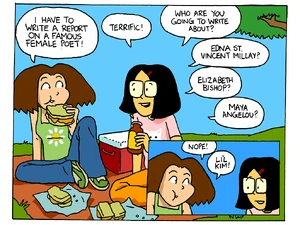| Poetry | |||
|---|---|---|---|
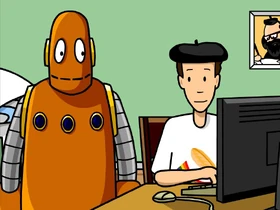 | |||
| Airdate | December 7, 2006 | ||
| Curriculum | English | ||
Poetry is a BrainPOP English video launched on December 7, 2006.
Summary[]
The video starts with Tim doing some poetry lines with a dark spotlight.
Appearances[]
Transcript[]
Trivia[]
- Tim's poem in the opening parodies "Howl" by Allen Ginsberg.
- Tim's quote is "I saw the robots of my generation; destroyed by bad programming, beeping hysterical; wiring themselves in the garage at dawn looking for an AC adapter; the absolute heart of the lithium-ion battery, guaranteed to run for a thousand years."
- The actual quote is "I saw the best minds of my generation destroyed by madness, starving hysterical naked, dragging themselves through the negro streets at dawn looking for an angry fix [...] with the absolute heart of the poem of life butchered out of their own bodies good to eat a thousand years."
Errors[]
- When Tim reads a poem by Edward Lear, he misses the word "and" in the line "Their hands are green, and their hands are blue."
Quiz[]
FYI[]
Famous Faces[]

Today, Emily Dickinson (1830-1886) is considered one of the greatest and most innovative American poets, but during her lifetime, she was completely unknown!
Although she graduated high school, the shy, introverted Dickinson dropped out of college after less than a year. She never married, and became more and more reclusive and eccentric as she got older. Eventually, she stopped seeing pretty much everyone but the members of her immediate family, and she didn’t leave her home for the last 20 years of her life.
Today, she would probably be classified as suffering from an anxiety disorder or agoraphobia, which is a fear of open spaces. Dickinson began writing poems in her early twenties, but did not truly blossom as a poet until 1861, when the American Civil War began. In 1862 alone, she wrote 366 poems, approximately one per day. After her death, her family found more than 800 poems in her room; overall, it’s estimated that Dickinson wrote more than 1700 poems!
Language[]
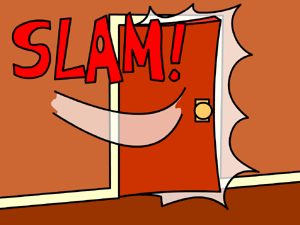
Alliteration: The repetition of consonant sounds at the beginning of words. “Moby moved mountains of maroon marmots.”
Assonance: The repetition of vowel sounds. “She leaves green tweezers on the street.”
Ballad: A story told in verse, often with a repeated refrain. Ballads are often about folk heroes, adventures, or historical events.
Blank verse: A form of poetry written in iambic pentameter, but which does not rhyme. The most famous examples are “Paradise Lost” by John Milton and the plays of William Shakespeare.
Consonance: The repetition of consonant sounds, like “leaf” and “loaf” or “roam” and “room”
Couplet: A pair of lines that rhyme. For example, “I think that I shall never see/ A poem as lovely as a tree.”
Elegy: A sad or thoughtful poem, often lamenting someone’s death
Foot: A metrical unit of two syllables
Hyperbole: A poetic technique in which the poet makes her point through exaggeration. “I’m so hungry I could eat a horse!”
Onomatopoeia (pronounced “ON-a-MOT-o-PEE-ya”): When a word is used to imitate a sound
Sonnet: A poem that is 14 lines long and that utilizes one of two specific meters and rhyme schemes
Around The World[]
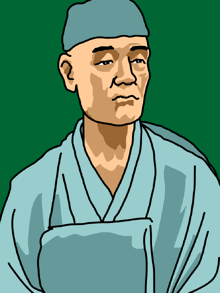
One of the simplest, yet most intriguing forms of poetry is the haiku, which became popular in Japan during the 17th century. A haiku consists entirely of seventeen non-rhyming syllables, broken up into three lines of five, seven, and five syllables each.
Traditionally, haiku also contain a “season” word, indicating the time of year in which the scene being described takes place. The most famous haiku poet of all time was Matsuo Basho (pictured). Among his more famous works (translated into English):
An old pond A frog jumps in The sound of water
The year’s first day Thoughts and loneliness Autumn is here
Senryu is a variant of haiku. Instead of nature and the seasons, senryu tend to be about human foibles, and often contain irony or wry humor. Here are some decidedly modern examples of senryu:
Fear runs like a stream The panic, the misery Time for a pop quiz
A swing and a miss Twenty-five million, for this? Alex Rodriguez
Can you come up with any senryu of your own?
Quotables[]
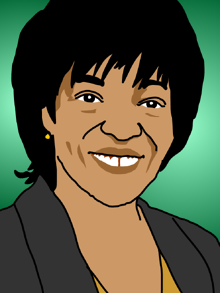
"Poetry is when an emotion has found its thought and the thought has found words." — Robert Frost, American poet
"Poetry is the opening and closing of a door, leaving those who look through to guess about what is seen during the moment." — Carl Sandburg, American poet
"Poetry is thoughts that breathe, and words that burn." — Thomas Gray, English poet
"Poetry is language at its most distilled and most powerful." — Rita Dove (pictured), American poet
"Poetry is a deal of joy and pain and wonder, with a dash of the dictionary." — Kahlil Gibran, Lebanese-American poet
"Poetry is ordinary language raised to the Nth power. Poetry is boned with ideas, nerved and blooded with emotions, all held together by the delicate, tough skin of words." — Paul Engle, American poet
Way Back When[]
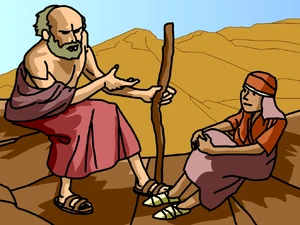
Poetry has been around as long as language; in fact, it’s probably even older than the written word!
Have you ever noticed how it’s easier to remember the words to a song than it is to remember exactly what your teacher said in class? The rhythm, meter, and rhyme create a framework that helps you recall large chunks of language. Ancient people realized that, so they memorized their most important stories and ideas as poems or songs. That way, they would be easier to remember, and could be passed down from generation to generation. This is called an oral tradition.
Most of the first poems to be written down were either transcriptions of oral tradition or epic poems, which told long stories about history, war, and mythology. The very first piece of written literature was an epic poem called the Epic of Gilgamesh. Written in 2000 B.C.E., it tells the story of an Ancient Sumerian king and his adventures. The Odyssey and the Iliad, the two epics by the Greek poet Homer, were once oral poems, too!
FYI Comic[]
